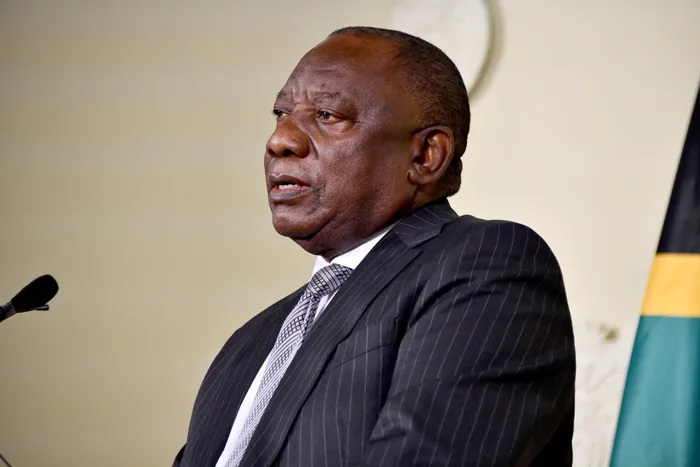Constrained fiscus, endemic corruption and lack of skills will cap potential growth in SA despite Ramaphosa’s reshuffle

South Africans will spend R600 million per year on minister packages alone. Picture: Elmond Jiyane.
Ever since President Cyril Ramaphosa’s announcement at the State of the Nation Address (Sona) that an electricity minister would be appointed in the Presidency to oversee the implementation of the energy action plan in addressing the energy crisis, South African households, businesses and investors have been eagerly awaiting the outcome of a reconfiguration of the national executive.
The president admitted that given that we are in the final year of the sixth administration, this was not meant to be a complete overhaul of Cabinet, but the announced changes were focused on addressing urgent vacancies (Deputy President, Minister of Electricity, Minister of Transport and Minister of Public Services and Administration) as well as to place a specific focus on the performance of government.
On Ramaphosa’s reshuffle, Momentum Investments economist Sanisha Packrisamy told Business Report, “While the formation of Cabinet plays an instrumental role in shaping government’s commitment to furthering economic and political reforms to drive higher levels of growth and socio-economic development, there are still a number of institutional and structural hindrances that will prevent a faster acceleration in SA’s growth path, in our view.”
Packrisamy said that a constrained fiscus, endemic corruption and a lack of skills in key areas of government to effectively execute government’s reform agenda would continue to cap potential growth.
“Moreover, internal resistance in the ruling party is preventing more effective delivery of public services, higher economic growth and better job outcomes. The latest Cabinet reconfiguration is likely to have disappointed markets given its limited scope for change, particularly with a number of under-performing ministers left unchanged in their portfolios,” she further said.
The economist said that the reshuffled Cabinet would unlikely alter the course of the economy before the 2024 national elections.
“As such, we still attach a high probability to a scenario in which electoral support for the African National Congress slips below 50% at next year’s elections, raising risks for political coalitions at a provincial and national level.The mere changing of some personnel in President Ramaphosa’s Cabinet, while leaving a number of key under-performing ministries intact and the addition of a new Electricity Minister, on its own, should have a very limited immediate impact on financial markets,” she further said.
“Only once there are concrete policy adjustments actually implemented by members of the new Cabinet to rectify the current major deficiencies in the SA economy should the markets react positively to indications that the country’s growth potential could be lifted from current low levels. Until then, markets are unlikely to give government the benefit of the doubt, after too many previous announced policy plans failed to come to actual fruition,” Packrisamy went on to say.
Reconfiguration of ministries and key roles:
- Deputy president:
- Electricity:
- Planning, monitoring and evaluation:
- Public service and administration:
- Transport:
Following the reshuffling of the Cabinet of ministers last night, as well as the appointment of new ministers by Ramaphosa, the South African taxpayer will now have to fork out even more money to maintain the lives of the political elite.
That means South Africans spend R600 million per year on minister packages alone.
BUSINESS REPORT